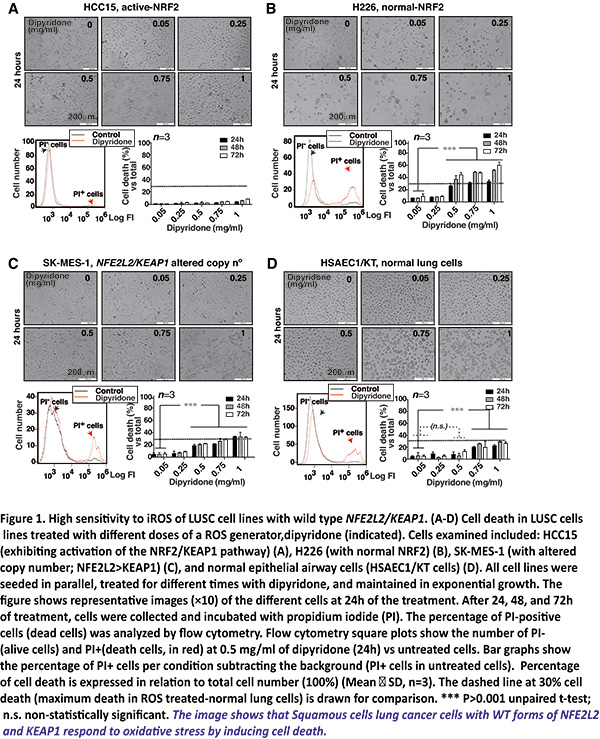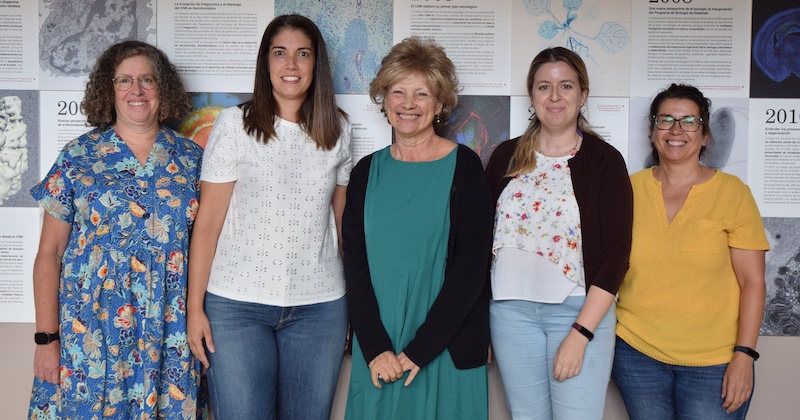Molecular targets in Health and Disease: focus on PI3-kinase and NRF2
RESEARCH GROUPS

Ana Clara Carrera
Group Leader
Research Summary
The focus of the team´s work is to define cancer progression drivers with special emphasis in PI3-kinase-and NRF2-controled pathways and focusing in lung squamous cell carcinoma, currently without an effective targeted therapy.
Research Lines
1) Inhibitory compounds for LUSC treatment based on interference with PIK3R2.
Lung cancer is the most common cause of cancer death worldwide. Approximately 85% of the lung cancer patients exhibit a histological subtype known as non-small cell lung carcinomas (NSCLC). This cancer type comprises several subtypes including adenocarcinoma (LUAD) and lung squamous cell carcinoma (LUSC) etc. Advances in basic and clinical research have increased our understanding of the mechanisms inducing cancer progression, leading to development of pharmacological inhibitors that block specific signaling pathways and can be used for cancer treatment (targeted therapies). In NSCLC this approach has been successfully used in LUAD tumors, with LUSC tumors still waiting for an efficient targeted therapy.
Different experimental approaches developed over last year’s support that p85b (encoded by PIK3R2) acts as a tumor driver in LUSC cancer (PMID: 27835880). Indeed, LUSC samples exhibit a frequent increase of p85b levels (PMID: 30961830), and at least in melanoma p85b increase correlate with tumor grade (PMID: 25217619). The idea of this project is to capitalize this knowledge for the screening and development of inhibitory compounds for LUSC based on interference with PIK3R2 action.
2) NRF2 regulated pathways as a source for novel LUSC therapeutic targets
NFE2L2 (NRF2) is a transcription factor regulated by KEAP1 (KEAP1), NRF2 directs the response of the cells to reactive oxygen species (ROS). In the last decade, the introduction of next-generation sequencing (NGS) has allowed the description of the mutational profile of different tumors. One of the relatively high frequency gene mutations of lung squamous cell carcinoma (LUSC), are those affecting NFE2L2/KEAP1. The first aim of this project is to define whether this pathway acts as a tumor driver for squamous LUSC cancer. Second to define NFE2L2/ KEAP1 downstream targets (using CRISPR/Cas9) and finally to test if these hits may regulate LUSC growth and can be considered novel therapeutic targets for LUSC.

Publications
Group Members
Group Leader
Ana Clara Carrera
Scientific Staff
Ana María González-García
Lab assistants
Carmen Hernández Agüero
Lorena Sanz González
Postdoctoral Researcher
Miriam Sánchez Ortega




